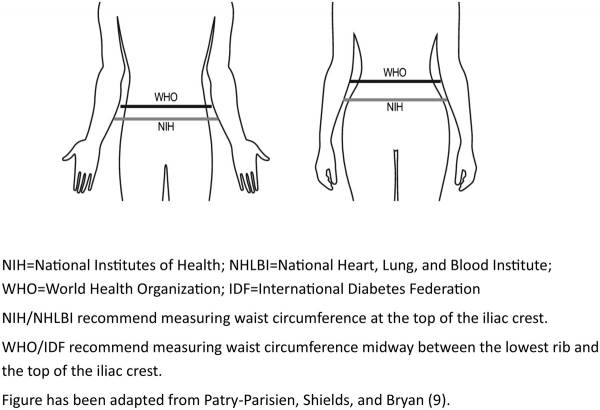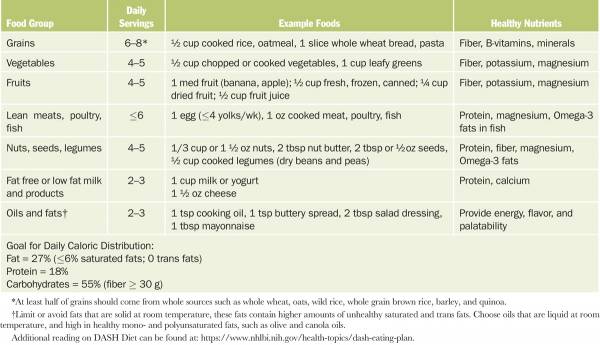Kari D. Pilolla, PhD, RDN, of the California Polytechnic State University in San Luis Obispo, believes there is no miracle diet, food, nutrient or bioactive component that will target belly fat. And reducing abdominal obesity can lower health risks.
In an article in ACSM’s Health & Fitness Journal, Pilolla helpfully defines how abdominal obesity is measured and skips through a quick review of some of the more popular diets to find her conclusions.
“Independent of body weight, a larger waist circumference increases risk for cardiovascular disease, diabetes, and metabolic syndrome,” Pilolla writes. These risks are mainly related to visceral adipose tissue – fat stored below the abdominal muscles, surrounding the major internal organs.
Visceral adipose tissue appears to be more “metabolically active” than subcutaneous fat, stored under the skin but above the abdominal muscles.
Defining Abdominal Obesity
While definitions vary, abdominal obesity has been defined as a waist circumference of about 34 inches in women and 40 inches in men.
Measuring waist circumference is the most common and convenient method of assessing abdominal obesity, and it corresponds well to other techniques (dual-energy x-ray absorptiometry and CT/MRI scans). Risk of abdominal obesity increases with age, especially in women, and with changes in hormone levels.

Can Diet Help to Fight Abdominal Obesity?
In her article, Pilolla bemoans the number of extravagant claims of “new discoveries” to “cure belly fat” made on the web. Among those she reviews are intermittent fasting, high-protein diets, Paleo, and green tea, although not strictly a diet.
Pilolla goes on to claim that there’s a lack of high-quality evidence on these trending diets, none of which, she believes, has been shown more effective than other types of energy-restricted (reduced-calorie) diets.
This is particularly a bone of contention for enthusiasts who follow Paleo, and more often these days, ketogenic, diets. Pilolla comes down on the side of heart-healthy diets like the NIH-developed Dietary Approaches to Stop Hypertension (DASH) diet and the Mediterranean-style diet and refers to a January 2018 article, U.S. News’ 40 Best Diets Overall.

This very same article had raised the ire of Rob Wolff, the Paleo diet guru, who saw the whole US News thing as “sad” and lacking in expertise. Like Pilolla, the US News editorial did not see enough supporting evidence that was compelling enough to support the claims of the Paleo diet as reducing abdominal obesity even though Pilolla did admit that waist circumference was not a target of any of the research.
There are, also, people like Matt Fitzgerald, an endurance athlete, and coach, who has written Diet Cults, and is a firm believer in agnostic healthy eating, in his discussions meaning you don’t demonize different food groups, much as low-carb does, for example.
Unfortunately, or fortunately, there may not be much point in debating the merits of Paleo versus DASH or the Mediterranean diet (also highly regarded by Pilolli in her article).
Fitzgerald and Pilolli belong to a group of people who don’t necessarily buy into the efficacy of something like Paleo or intermittent fasting and get crap for it from the adherents of those diets but that doesn’t mean they say those diets are negatives, either.
The real argument is, how do we eat? Do we need to be strictly controlled and managed, and do we need to deprive ourselves because it’s easier to eat healthy when you are faced with so many uncertain, and often unhealthy choices in the real world?
Or, do we accept that we need to be aware of what we eat but that restriction also creates unhealthy approaches – that DASH or the Mediterranean diet is very applicable to a broad audience provided you focus on the quality of your food sources?
There’s certainly a lot of money, a lot, that goes into diets, dieting, and diet foods. People who tout diets gain a lot of financial benefit from doing so and keeping people on those diets.
On the other hand, people who go on these diets also take liberties and cut corners on food quality and choice. Inevitably, you have to decide on what is sustainable as a lifestyle for you.
Eating well is not cheap. Eating well is not easy. For some, that means deprivation and demonization of other eating habits. For some, obesity and DASH diets are not connected other than the fact that the recommendations are hardly ever met by most people who may only choose to eat processed foods, or have little access to better quality products.
Of One Thing We Can Be Certain – Exercise is King
Whatever your personal feelings about diets and diet advice, you will have to look at energy restriction in your diet, however you choose to do that, in order to lose that belly fat. You will have to follow an exercise regimen and resistance training is important.
You will need to be proactive in educating yourself, or work with trusted experts and nutritionists, to assess your own health risks, and find a path forward. Thre is no miracle diet, food, nutrient, bioactive component that will target abdominal fat. That cannot be stressed enough.
And leave the debating and fighting to the trolls and commentators. You are going to have your own personal challenges in shaping a diet and it cannot be based solely on dogma. It has to be based on your individual profile, body chemistry, and ultimately, response to your dietary and exercise choices.
You might also like:






